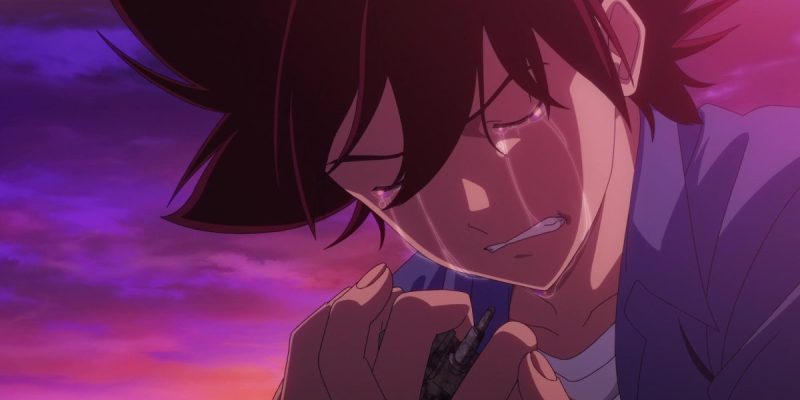Warning: The following article on how Digimon Adventure: Last Evolution Kizuna made me realize my childhood was over contains spoilers.
Growing up, Digimon was my childhood anime. I enjoyed Pokémon, but Digimon is what I stuck with. I watched it for years, and when Digimon Adventure: Last Evolution Kizuna arrived, it was emotionally devastating.
The film follows the DigiDestined as they face an enemy they can’t defeat: time. The heroes are up against a new and dangerous Digimon. That’s not the worst of it though. The gang has to face an inevitable tragedy, the loss of their digital partners. Within Digimon Adventure: Last Evolution Kizuna is a seemingly straightforward narrative. However, it has within it deep undercurrents of tragedy and lessons about holding onto your childhood too tightly.
Related: Digimon Ghost Game Is the Best Gateway Horror for Kids
After watching Digimon Adventure: Last Evolution Kizuna, I realised that I had quietly said goodbye to a part of my childhood. When first watching it, I rallied with Tai and Matt as they battled against a dark interpretation of Peter Pan, Menoa Bellucci along with Eosmon, who turns out to be a shadow of Menoa’s departed Digimon, Morphomon. Seeing them unlock a new form of Digivolution thanks to the unshakable bonds with Agumon and Gabumon was deeply emotional. Then came the fallout, the loss. With it came the inevitable tears and sense of hollowness. Thankfully time can also be a healer and with Spring came rebirth and hope for something new and familiar down the road.
They, however, are not who I now empathise with the most. Looking back on Digimon Adventure: Last Evolution Kizuna, I realised that Sora is who we all are. While the rest of the DigiDestined are trying to figure out what’s wrong and fighting for justice, Sora is doing something far more relatable. She cherishes what time she has left with Biyomon. Sora understands that time is short and doesn’t want to waste it when she could be spending it with her literal soulmate.
Related: Digimon World: Next Order Digivolves on Switch & PC Early Next Year
All Digimon are a manifestation of the potential and innocence of children and when Sora sees she’s about to lose Biyomon she wants to only fill that space with good times. It’s beautiful, it’s bittersweet and it’s what it means to transition from childhood to adulthood. We’ve all done it and it’s a bittersweet rite of passage.
This can be seen in the unintentional act of losing your Digimon. For the antagonist of the film, Menoa, it happened when she was 14. The reason is that she grew up remarkably fast. She wanted so desperately to be taken seriously that she became an adult far sooner than she should have been. On the other side of the spectrum is Tai, who loses Agumon at 22.
The narrative of Tai’s journey is about trying to figure out what he wants as he becomes a man. And when he realises what he wants, unconsciously it should be noted, that is when the timer appears on his Digivice. It’s almost like Digimon are there to usher you into adulthood. They are there to keep you safe until you need them no more. It’s a thankless job, but it’s one that they love.
Digimon, as a story, has been like a teacher to me. I learned life lessons from it. With bonds of courage and friendship, a heart full of hope, and sincerity in my words backed by knowledge over my many years I think I’m not alone in saying that stories like Digimon are where children can retreat to for love, reliability and light in the dark. I know I had many stories I found solace in.
However, it also understands that eventually, we have to evolve as humans so as not to stagnate. It’s a bittersweet process but I don’t regret it anymore.
